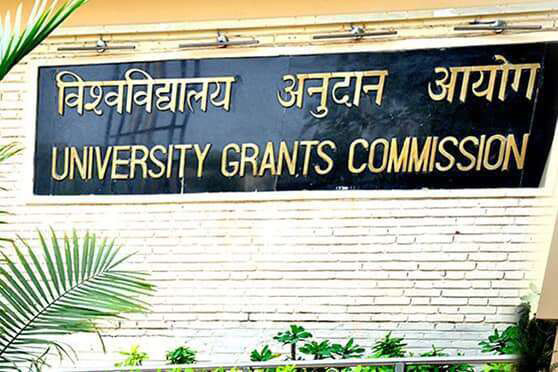The University Grants Commission’s move of scrapping the requirement for scholars to publish and present papers before they can be awarded a PhD has divided academics.
Some educators are worried about the decision’s possible impact on the quality of research while others say that such mandatory rules serve little purpose and always contain loopholes.
The UGC (Minimum Standards and Procedures for Award of PhD Degree) Regulations 2022 supersede the previous regulations, notified in 2016. The 2016 regulations stipulated that a PhD scholar must publish at least one research paper in a refereed journal and make two paper presentations in conferences or seminars before they submit their dissertation or thesis for adjudication. The new regulations have dropped both requirements.
The UGC had in November 2018 set up the UGC Consortium for Academics and Research Ethics (UGC-CARE), which provides a reference list of quality journals in various subjects where teachers and research scholars can publish their papers.
Former Mumbai University vice-chancellor Ranjan Welukar regretted the removal of the requirement for publication.
“My perception and experience is that teachers have started publishing their research papers in UGC-approved CARE list journals. Sometimes forced motivation helps,” Welukar said.
He said the requirement for publication has a direct link to the quality of research. If the research lacks quality, the chances of publication in a refereed journal are low.
A JNU teacher said the requirement for publication was a good thing but its implementation was poor.
“There are predatory journals on the UGC-CARE list too. Many students have been publishing their papers in predatory and fraudulent journals (which publish without proper scrutiny and for a fee),” the teacher said.
Still, the teacher said, the matter should have been studied more before the decision to waive the requirement for publication was taken.
Former Indian Institute of Sciences director Padmanabhan Balaram had in 2019 headed a committee that examined the UGC’s PhD rules and recommended removing the requirement for publication.
“India has become the main source of predatory journals. If an institution compromises with the standards, the UGC’s rule stipulating publication cannot ensure quality,” Balaram told The Telegraph.
“If the IISc and the IITs are producing quality research, it is because their faculty and students are serious about quality research. Quality control has to be done at the level of institutions through supervisors and the exam system rather than through a centralised formula.”
He said the supervisor has the responsibility to ensure the quality of the student’s work, and the university too can scrutinise the quality of the research during the pre-PhD exam.
Welukar, however, said that just because many people have published their papers in predatory journals, it cannot be concluded that all research papers are published in predatory journals.
“I think the UGC should have tried to obtain the actual data on research publications relating to the past five years and then taken an academic decision, based on its research, on this subject,” he said.
Bhushan Patwardhan, former UGC vice-chairman who played a key role in setting up the UGC-CARE, said the best way to improve quality was to encourage the best practices rather than make them compulsory.
“When any provision is made compulsory, people try various (dishonest) means for compliance. At times, the practices that are followed defeat the purpose of quality improvement. There are various ways to encourage the best practices, such as giving some weightage or incentives,” Patwardhan said.
The UGC-CARE list of jour- The Order of Merit nals was not updated in the third quarter of the year, ending September. The list is supposed to be updated every quarter.
The vice-chancellor of a state university, who didn’t wish to be named, expressed fear that the UGC might be winding up the UGC-CARE. Sushma Yadav, UGC member and chairperson of the expert committee entrusted with updating the list, said the committee was studying the procedures and protocols of including and excluding journals from the list.
“Our committee was recently constituted. We are examining the protocols. The UGC-CARE is not going to be closed; it’s a temporary delay,” Yadav said.











